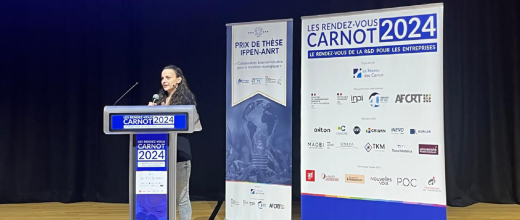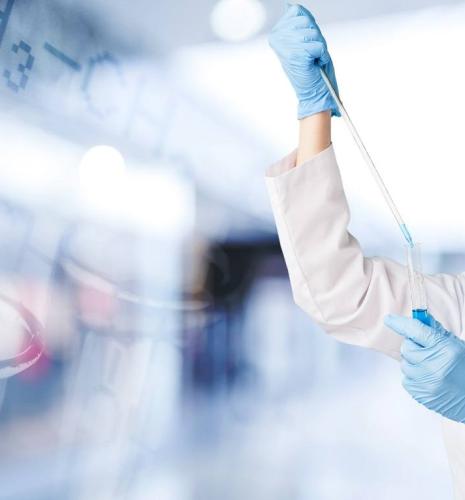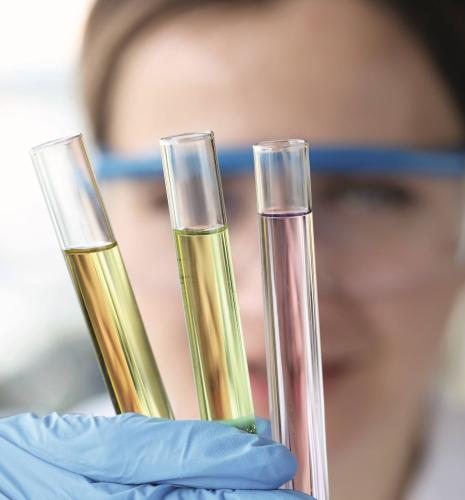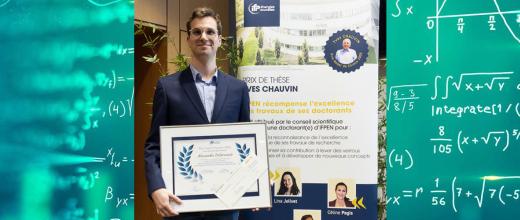
News in brief
Biochemical conversion of biomass
The degradation of plant biomass by the Trichoderma reesei enzyme cocktail: composition, interactions and improvement avenues. The development of alternative, low-carbon energies is essential in order to reduce greenhouse gas emissions and tackle climate change. One example is second-generation bioethanol, produced from lignocellullosic biomass and used as a fuel in the mobility sector. The research of Senta Blanquet has focused on a crucial step in the production process for this biofuel: enzymatic hydrolysis.
Individual page
Frédérique BIDARD-MICHELOT
Research engineer in Biotechnology,
PhD in biochemistry, cellular and molecular biology
PhD in biochemistry, cellular and molecular biology
Frédérique Bidard-Michelot, a doctor in biochemistry, molecular and cellular biology from the University of Montpellier II, has dedicated her career to the study of ascomycete microorganisms (yeasts
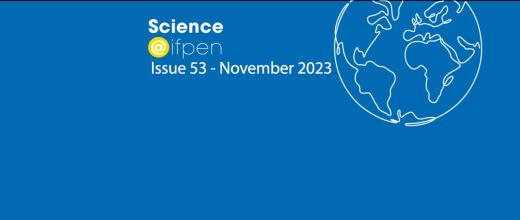
News in brief
Yves Chauvin Prize: Metabolic engineering at the heart of bio-based processes
Within the context of the energy transition, new bioprocesses are emerging as substitutes for processes using fossil resources. For example, Clostridium acetobutylicum is a microorganism capable of converting the large variety of sugars derived from lignocellulosic biomass into a raft of bio-based substances, via fermentation. This makes it a potential candidate for producing biofuels and/or chemical intermediates that can be used by industry....
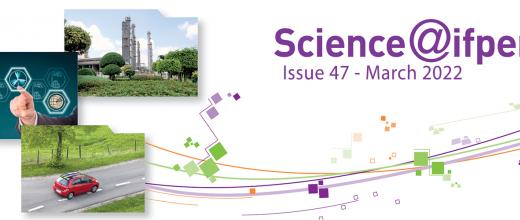
News in brief
The “Omics”, seven hired hands working for biotechnology
Most frequently, the use of a microorganism in the production of biofuels or biosourced chemicals requires its optimisation. This is achieved through genetic engineering, which involves inactivation and/or addition of one or more genes, to improve the ability of this microorganism to produce a target molecule. (...) At IFPEN, access to genomics (DNA) has helped in gathering data on the composition and structure of the genomes of the microorganisms...
Individual page
Simon ARRAGAIN
Research engineer
I carried out my thesis at CEA Grenoble (UMR 5249, UGA / CNRS / CEA), under the supervision of Professor Marc Fontecave and Dr. Hamid Atta, on [FeS] cluster metalloproteins (RimO, MiaB, MtaB) called
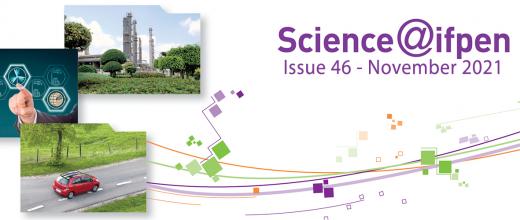
News in brief
Rock-Eval®: supporting soil research for the climate challenge
One way to decrease the amount of atmospheric CO2 is to reduce greenhouse gas emissions of fossil origin, but it is also possible to increase the quantities of carbon stored in the soil. (...) In the current context of climate change, understanding the evolution of carbon in the ground is critically important. It is for this reason that IFPEN wanted to study the potential offered by Rock-Eval®, a flagship of oil research...
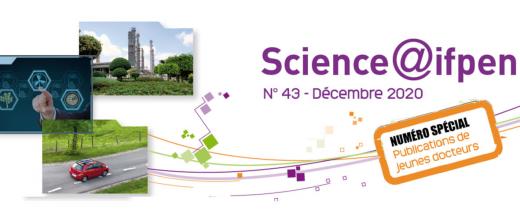
News in brief
Optimization of a microorganism of interest for the bioproduction of isopropanol and n-butanol
A major challenge of the energy transition, the substitution of petrochemical processes by bioprocesses requires the use of catalysts (or microorganisms) to produce molecules for industry...
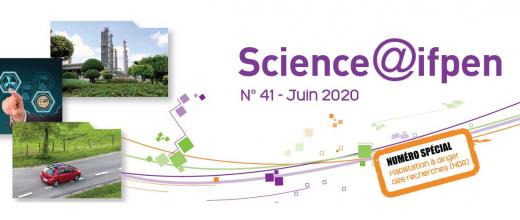
News in brief
Hydrolysis of lignocellulosic biomass: study of enzyme-substrate interactions (HDR 2015)
The scope of my HDR covered ten years of research at IFPEN within the context of the development of Futurol™, a process aimed at producing 2nd-generation bioethanol from lignocellulosic biomass. My
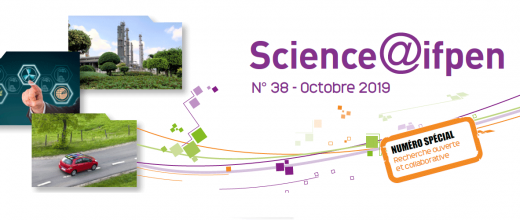
News in brief
F’Unlock project: to unlock plant biomass hydrolysis using enzymes
Lignocellulosic biomass is an interesting raw material for the production of fuels and chemical intermediates because it is abundant and has a much smaller environmental footprint than fossil



